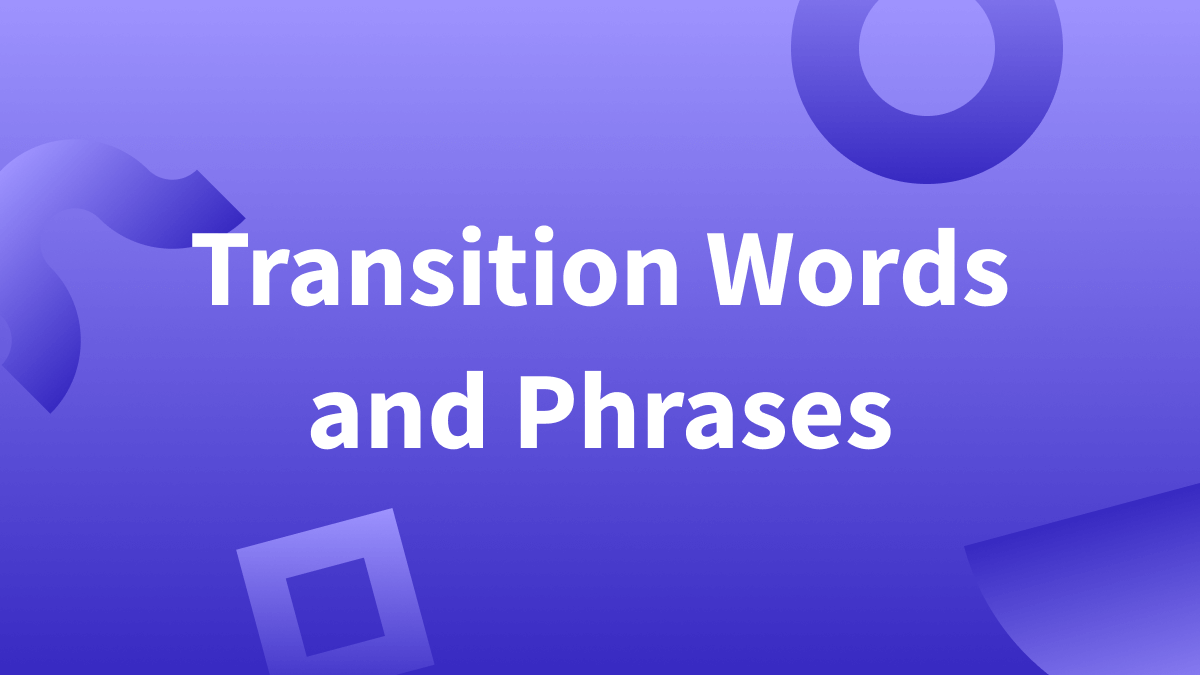- Transition words link your paragraphs and ideas to each other.
- If you want to improve the flow of your writing, make sure to include transitional words and phrases.
What Are “Transitions Words”?
Transition words (also known as transitional expressions) help guide your readers from one idea to the next. Readers don’t like abrupt changes, and they can be thrown off if you suddenly start talking about a different point or idea. Transition words improve the flow of your writing by linking paragraphs to each other. There is a myriad of transitional words and phrases you can include in your writing. We’ll cover the various types below.
Transition Words List
There are several types of transition words that serve different functions. Below, you’ll find a table with examples of transition words.
In Short, Transition Words and Phrases Improve Your Writing
If you want seamless writing, then transition words are vital. They help prepare your readers by letting them know how the upcoming text is relevant to what you just wrote. As essential as transition words are, they aren’t magical. Even properly placed transition words cannot undo the damage of having spelling and grammar mistakes. Luckily, LanguageTool can detect several types of errors, and it will offer corrections. Additionally, this multilingual text editor can provide synonyms and suggest stylistic improvements that’ll enhance your writing.

